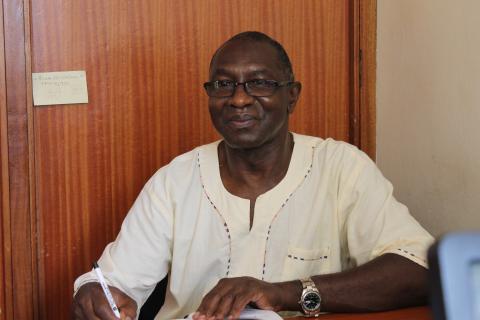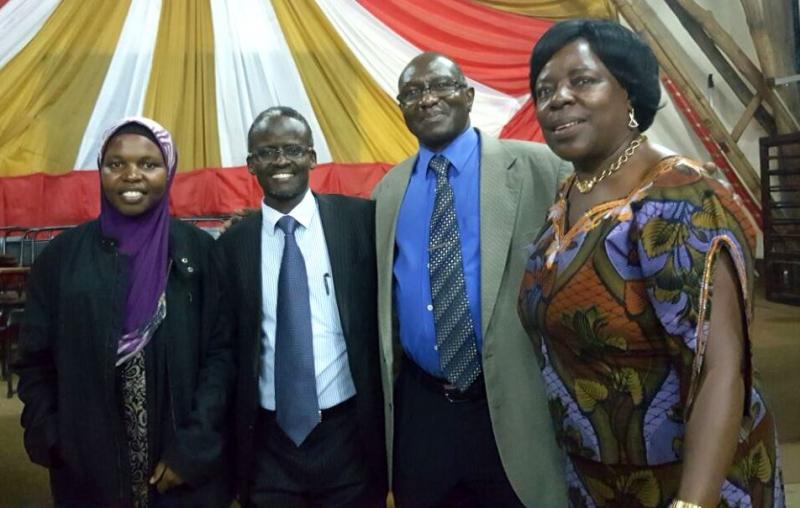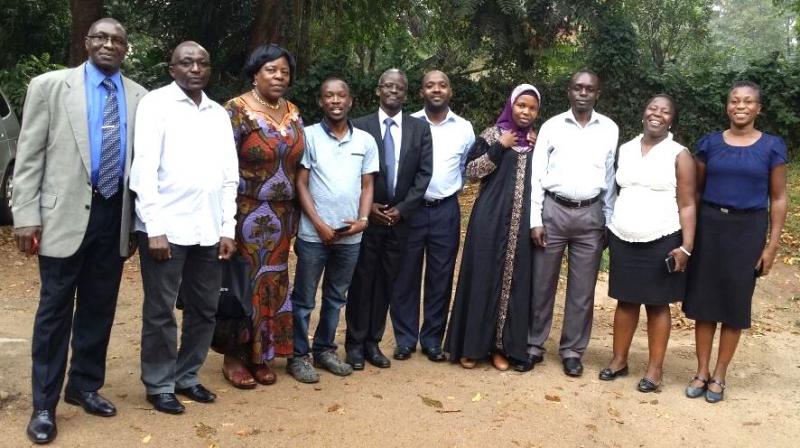
Professor James Kiwanuka-Tondo, a visiting professor at the Department of Journalism and Communication (DJC), has wound up his visit with a call for more academic programmes and an appreciation of the focused direction the Department has taken.
In an exclusive interview with the Department’s online news channel, the highly schooled Professor revealed that he was impressed by the rate at which the Department had grown from offering only undergraduate to postgraduate programmes, both at Masters and PhD level. “I applaud the Department and faculty for the work they have done in a short while. Keep it up,” he said.
Prof. Kiwanuka-Tondo is a Carnegie Africa Diaspora fellow, based at North Carolina State University. He visited DJC from June- August 2016, and is back for a few weeks to wind up some additional tasks. During his visit, the highly schooled Professor participated in DJC’s curriculum review process aimed at deriving a “clear distinction between the Journalism and Communication professions of public relations, advertising, development communication, and corporate/organizational communication,” according to the Chair Dr. William Tayeebwa.
“In relation to the academic programmes, I advise that you put more emphasis on research methods for both undergraduate and post graduate students. In addition, I have proposed programmes that need to be added and others that have to be consolidated,” he guides. “I am grateful to the entire Department for the warm hospitality that I have been accorded throughout my stay. Thank you very much,” he adds.
The Professor is however concerned at the low levels of staffing, but is optimistic that the members of staff currently training for PhDs will return soonest and beef up the Department. “It is a challenge that there are a few staff to teach on the graduate programme and this has caused a level of stress but I believe this is in the short term, especially if those training for PhDs return to alleviate this situation,” he asserts.
Dr. Tayeebwa has already extended an invitation to Prof. Kiwanuka-Tondo to relocate to the Department of Journalism and Communication when the opportunity presents.
About Prof. Kiwanuka-Tondo
He is an Associate Professor in the Department of Communication at North Carolina State University, interested in research on health communication campaigns, with  particular emphasis on HIV/AIDS. His major contribution has been the development of the first ever quantitative model of relationships between organizational factors, campaign planning, and campaign execution variables.
particular emphasis on HIV/AIDS. His major contribution has been the development of the first ever quantitative model of relationships between organizational factors, campaign planning, and campaign execution variables.
His work on HIV/AIDS has been published in a number of journals and he has been a principal investigator on several research grants including Co-PI on a research project funded with grant from the National Science Foundation with a purpose of developing culturally sensitive HIV/AIDS prevention messages for Black College Female students. Dr. Kiwanuka-Tondo has received several awards including the inaugural Lawrence M. Clark Faculty Excellence Award 2013, Outstanding Faculty 2008, Department of Communication; the Advocacy Award for Promoting the Presence of African American at North Carolina State University 2008; and the Outstanding Teacher Spring 2007, Department of Communication, North Carolina State University. He also received the Outstanding Professor of the Year 1999 from Sigma Phi Epsilon chapter at the University of Connecticut.

He is Co-Chair of the Advisory Board of North Carolina Community AIDS Fund (NCCAF); member of the Board of Directors of Maama Awatali, Uganda; member of the Board of Directors for and Stop Hunger Now; and member of Board of Directors, Mama Afrika. He is a fellow of the Salzburg Seminar, and a recipient of the Fulbright Scholarship, as well as the British Commonwealth Technical Scholarship.
Article by Marion Alina
Photos by Tonny Luggya
- Log in to post comments




